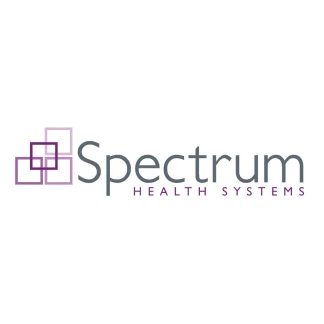The Brien Center - North County
The Brien Center–North County provides comprehensive mental health and dual diag...
In 2015, Spectrum opened its North Adams Outpatient Treatment Center to improve access for individuals in Berkshire County, Southern Vermont and Eastern New York State. Many of these individuals were previously without treatment or had to drive hours each day to the closest treatment center miles away.
Founded in 1969, Spectrum Health Systems, Inc. is a private, nonprofit organization dedicated to improving the lives of individuals impacted by addiction and/or mental health disorders. Over the past 50 years, Spectrum has become known as an industry leader, helping thousands of individuals overcome addiction and reclaim their lives.
Today, we offer a continuum of addiction treatment services across Massachusetts, including inpatient detoxification, residential rehabilitation, medication-assisted treatment, outpatient counseling and peer recovery support. Spectrum also operates a number of residential programs for the Massachusetts Department of Youth Services. And, we have state contracts throughout the country to provide specialized programming for criminal offenders with histories of substance abuse.
Contact us for more information: (413) 664-9024

Connect with Spectrum Health Systems by calling their admissions team directly.
(413) 664-9024 Website Get DirectionsThe Commission on Accreditation of Rehabilitation Facilities (CARF) is a non-profit organization that specifically accredits rehab organizations. Founded in 1966, CARF's, mission is to help service providers like rehab facilities maintain high standards of care.
CARF Accreditation: Yes
Research clearly demonstrates that recovery is far more successful and sustainable when loved ones like family members participate in rehab and substance abuse treatment. Genetic factors may be at play when it comes to drug and alcohol addiction, as well as mental health issues. Family dynamics often play a critical role in addiction triggers, and if properly educated, family members can be a strong source of support when it comes to rehabilitation.
Group therapy is any therapeutic work that happens in a group (not one-on-one). There are a number of different group therapy modalities, including support groups, experiential therapy, psycho-education, and more. Group therapy involves treatment as well as processing interaction between group members.
In individual therapy, a patient meets one-on-one with a trained psychologist or counselor. Therapy is a pivotal part of effective substance abuse treatment, as it often covers root causes of addiction, including challenges faced by the patient in their social, family, and work/school life.
Group therapy is any therapeutic work that happens in a group (not one-on-one). There are a number of different group therapy modalities, including support groups, experiential therapy, psycho-education, and more. Group therapy involves treatment as well as processing interaction between group members.
In individual therapy, a patient meets one-on-one with a trained psychologist or counselor. Therapy is a pivotal part of effective substance abuse treatment, as it often covers root causes of addiction, including challenges faced by the patient in their social, family, and work/school life.
In individual therapy, a patient meets one-on-one with a trained psychologist or counselor. Therapy is a pivotal part of effective substance abuse treatment, as it often covers root causes of addiction, including challenges faced by the patient in their social, family, and work/school life.
The Brien Center–North County provides comprehensive mental health and dual diag...
SaVida Health, in North Adams, Massachusetts, is an outpatient drug and alcohol ...